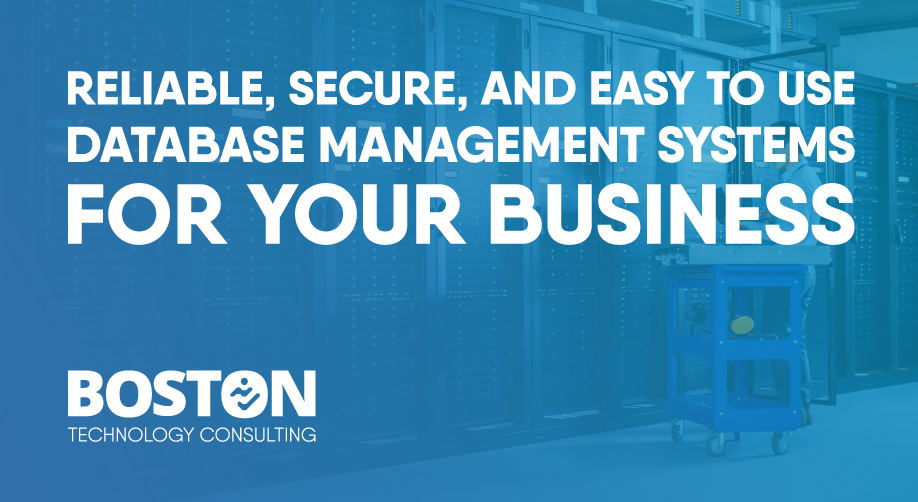
Every modern software application relies heavily on data, and databases are the most common way of storing and managing data.
As web and cloud technologies have evolved, databases have evolved from traditional databases into more advanced types such as NoSQL, columnar, key-value, hierarchical, and distributed databases. It is possible to handle structured, semi-structured, and even unstructured data with each type.
Additionally, databases constantly handle sensitive and mission-critical data. Managing databases has become extremely difficult; to maintain these databases, organizations need tools that are reliable, secure, and easy to use.
This is where database management systems come into play.

Database Management Systems (DBMS) are software tools used to manage data in databases. Users can interact with the underlying database by managing and storing data.
A database management system's functions may include capacity planning, installation, configuration, database design, migration, performance monitoring, security, troubleshooting, backup and data recovery.

A DBMS typically offers the following key tasks for database administration to be carried out:
- Configuring authentication and authorization - Easily create user accounts, define access policies, modify restrictions, and manage access scopes. By using these operations, administrators can control user actions, limit access to underlying data, and manage database users.
- Assuring the safety of data by performing backups and snapshots - DBMS can restore the backup process seamlessly by providing a simplified interface to manage backups and snapshots of databases. Besides storing these backups on their own systems, they can also store them on third-party servers, such as cloud storage.
- Optimizing performance - Users can tune databases by creating optimized indexes using integrated tools provided by a DBMS. As a result, it improves database performance by reducing I/O usage.
- Data dsaster recovery - As part of a recovery operation, a DBMS provides the necessary tools to seamlessly restore databases to their prior state.
A centralized management interface is used to facilitate all these administrative tasks. Even in a distributed database scenario, the majority of modern DBMS manage multiple database workloads from a centralized DBMS software. Additionally, they enable businesses to have a centralized, governed view of all data, users, groups, locations, etc. in an organized manner.

Today's technological industry applications offer a wide variety of DBMS. The below types have been categorized by how frequently they are used.
1. Relational database management system (RDBMS)
RDBMS are the most important type and aim to interact with databases containing structured data in a table format with predetermined relationships. Furthermore, they interact with databases through the use of structured query language (SQL). Database management systems such as Microsoft SQL Server, MySQL, and Oracle Database are examples of this type of software.
2. Document database management system (DoDBMS)
DoDBMS are used for managing databases containing data stored in JSON-like structures with or without a limited relationship structure. For database operations, they use MongoDB Query Language (MQL). MongoDB and Azure Cosmos DB are among the most prominent DoDBMS.
3. Columnar database management systems (CDBMS)
An object-oriented DBMS uses columns rather than rows to store data in columnar databases, emphasizing high performance. Columnar databases include Apache Cassandra and Apache HBase.

The purpose of a database management system is to solve issues related to the storage, management, access, security, and auditing of data. By using a DBMS, software users and organizations can gain the following benefits:
Securing data more effectively
DBMS’ enable security and compliance management by controlling users and enforcing policies. Thus, data breaches are less likely to occur with this controlled access to the database.
Data sharing made easy
A DBMS enables users to access databases securely from anywhere. Therefore, they can handle any database-related task promptly without worrying about database security or complex access methods. Furthermore, a DBMS allows for effective collaboration when users interact with a database.
An integrated data system
The DBMS allows users to manage multiple databases from a single interface instead of operating them separately and gaining a centralized view of them.
Independence & abstraction
DBMS’ permit users to modify a database's physical schema without altering its logical schema. Thus, organizations are able to scale the underlying database infrastructure without affecting database operations.
As a result, any changes to the logical schema can also be implemented without affecting applications that access the databases.
Mechanism for streamlined backups and recovery
Backup and recovery tools are built into most databases. A DBMS, however, offers centralized tools that facilitate backup and recovery functionalities more conveniently, thus improving the user experience. Securing data has become easier than ever with functionalities such as:
- Automated snapshots
- Backup scheduling
- Backup verifications
- Multiple recovery methods
- Monitoring & management in a uniform manner
Database management systems simplify the workload of database administrators by providing a single interface for managing and monitoring databases. Reporting and auditing are a few examples of these tasks.
Choosing the right database management system
When choosing a DBMS, it is important to consider factors such as user-friendliness, scalability, integration capacity, and cost. If you are looking for seamless data-driven integration into your existing system, our team of experts can walk you through several options. Email us today at [email protected] to begin your journey.